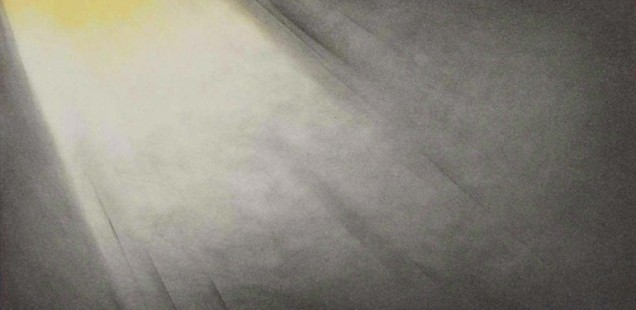
The Interruption of Dying
We are, on the whole, uneasy with Lent. Because we hate being interrupted. It ruins our innate belief in our own self-importance. When we busy ourselves doing life, however we do it, nothing could be quite as irksome as being interrupted with the silent fidgeting reminder of death. For that is what disrupts in Lent. To be interrupted is enough. To be interrupted only to be reminded that we are dying, that is uneasy.
American novelist Flannery O’Connor was no stranger to interruptions. While writing her most celebrated work, Wise Blood, lupus interrupted her – forcing her onto a quiet farm in Georgia, and eventually subjecting her to an early death. Perhaps this sort of disturbance influenced her writing, which overflows with characters checked by disturbing actions, freaks, and eruptions of violence. Her characters seem to get smacked hard by reality, but that reality yields truer life. Once in the fledgling days of her writing career, she dined at the home of a few literary elites, who, like all literary elites, carried their confident opinions balanced precariously on their upturned noses. She said little throughout the evening, feeling, as she said, like a dog who had learned a few words, but was overcome by inadequacy and had forgotten them. Eventually in the early morning hours, the conversation turned to religion. The dinner party commented upon the quaintness of O’Connor’s committed Christian belief and her charming naiveté that she found the Eucharist useful. Despite her previous meekness, O’Connor interrupted the conversation with the cold smack of reality. She didn’t take the Eucharist because it was useful to her, but because it was real. And if it wasn’t real, then to hell with it.
Lent disrupts us like Flannery at a dinner party. Your sin is real it says. Your sin is killing you. We are dying. We need that interruption, because without it we will never believe that real life is more than what you see and what you get. Knowing that we are dying, reminds us what is worth dying for.
Only Christians can seize this kind of an interruption with joy, because we hold on to the Author of life, the God who rose from the dead. We can look into the face of death. We can even walk into death, because we know that God will raise us to life without the stench of death and all of its friends.
So, take the remainder of this 40 day interruption to consider the dead and dying things within you, the fetid things that cry out for your attention. Maybe they don’t even appear dead and dying on the surface – things such as food, drink, or success that are good, beautiful, and life giving but become idols in our hearts and in our lives. Look hard at those things in your heart that deceive you about the life and delight they will bring. But don’t simply consider them. Don’t just look at them, look through them. Keep them in your gaze, and then look through them to Christ. See behind them, the radiating brightness and sweet fragrance of the Lily of the Valley, and be unafraid to let them go. In fact, embrace their dying and look forward to your rising. Christ will not leave us rotting in the grave, but will breath new life into our bones and raise us without any stench of the dying we once did or the reason that we had to die. Easter always ends Lent. It doesn’t come after, it ends it.
Flannery O’Connor as she neared the end of her life said, “As I understand it, the Church teaches that our resurrected bodies will be intact…with all the contradictions beautiful to you, except the contradiction of sin…for when all you see will be God, all you will want will be God.”[1]
So this lent, let the contradiction of sin and the dying that you are doing interrupt you. Don’t be hasty to ignore it, but look through to Christ, for when you see Him, full of life and coming to you, you will want nothing but Him.
___________________
[1] http://www.nybooks.com/articles/archives/2009/apr/09/the-parables-of-flannery-oconnor/